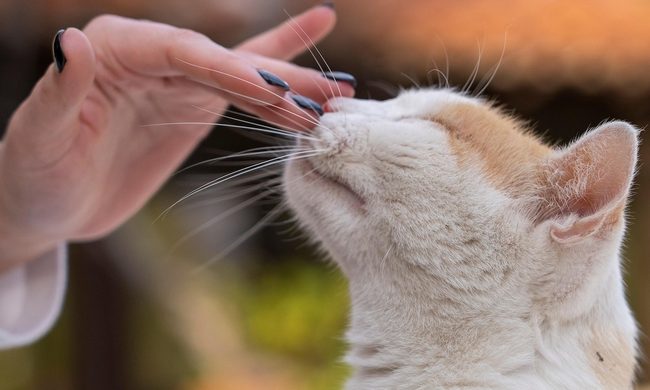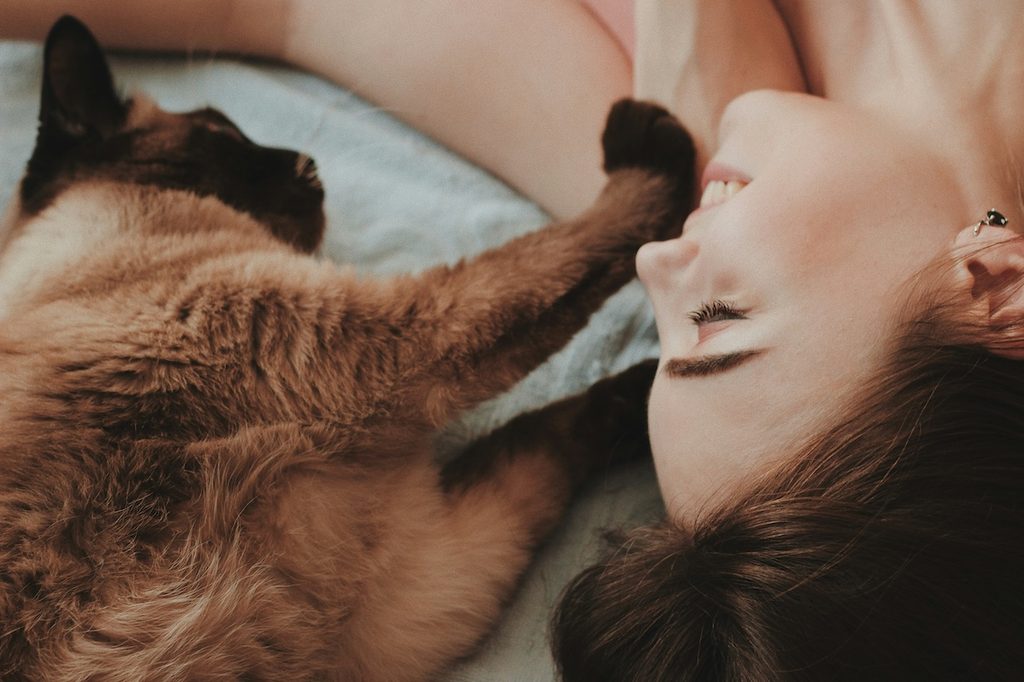
Cats are curious creatures. Sometimes, you may wonder, “Is this the end for me?” as your kitty saunters toward you. Yet, you find out your cat very much would like to keep you around — and use you for your earwax. You may have heard cats adore going ham on holiday trees and go bananas for tuna. A love of earwax? That one probably was missing from your bingo card. Yet, here we are.
Plot twist: Many cats have a thing for earwax, but why? What gives? Why do cats like earwax? Also, some items like indoor plants are toxic to cats. Is earwax? These questions are all good ones. We dug up some answers, including why cats like earwax and when to be concerned.
Why do cats like earwax?
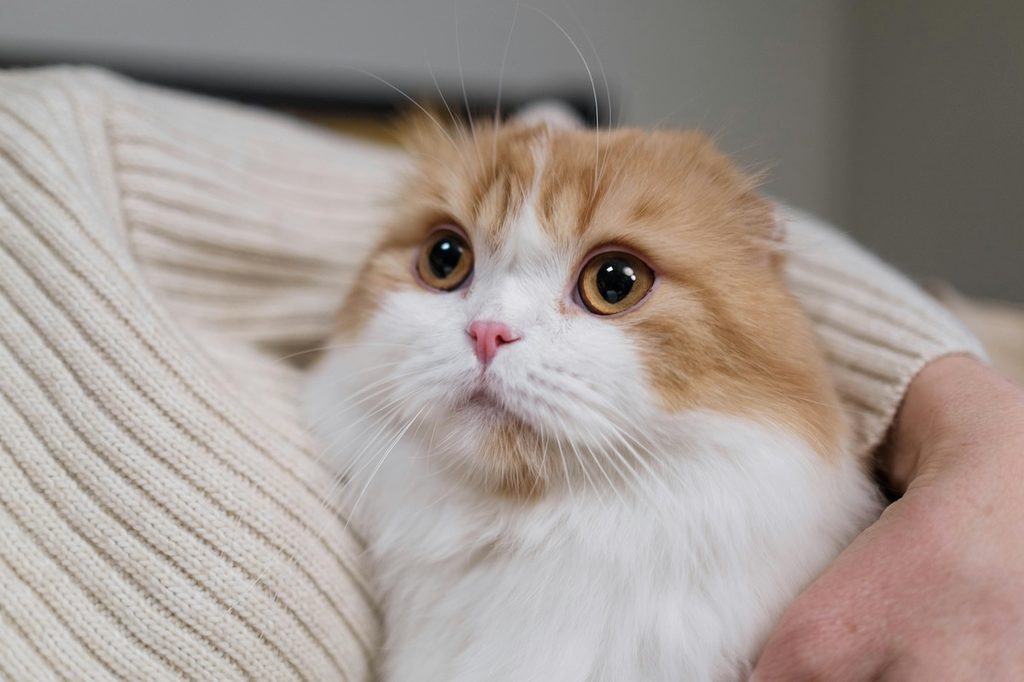
Earwax boasts a multi-sensory experience for cats, which may be drawn to the taste (strange but true) and smell. Their love of your earwax may also be a compliment of sorts. Stick with us.
Earwax tastes good
Your cat may have such a refined palate that they consider earwax a delicacy. Why earwax over caviar? (First: Your cat may also like caviar if given the option.) Cats love meat and are descended from wild felines that require animal protein to survive. Though your sofa lion is domesticated, kitties remain carnivores. Earwax is high in protein and fat — just like meat. Your feline friend may dig that.
Earwax smells delicious
While taste could undoubtedly be why your cat loves earwax, smell is the more likely sensory factor in play. Cats have fewer taste receptors than humans but many more scent ones. Your kitty may be able to cut through the wax and smell all those delicious, nutritious proteins, fatty acids, and cholesterol. Mmm.
Bonding and grooming
Cats lick as a form of grooming and affection — not just toward themselves. In cat communities, felines engage in “allogrooming,” which can signal love or be a gentle way to communicate dominance. Also, grooming helps cats clean themselves and one another. Your cat may be trying to engage in allogrooming with you or letting you know that your ears could use some TLC (and getting some extra protein while in the vicinity).
Is earwax bad for cats?
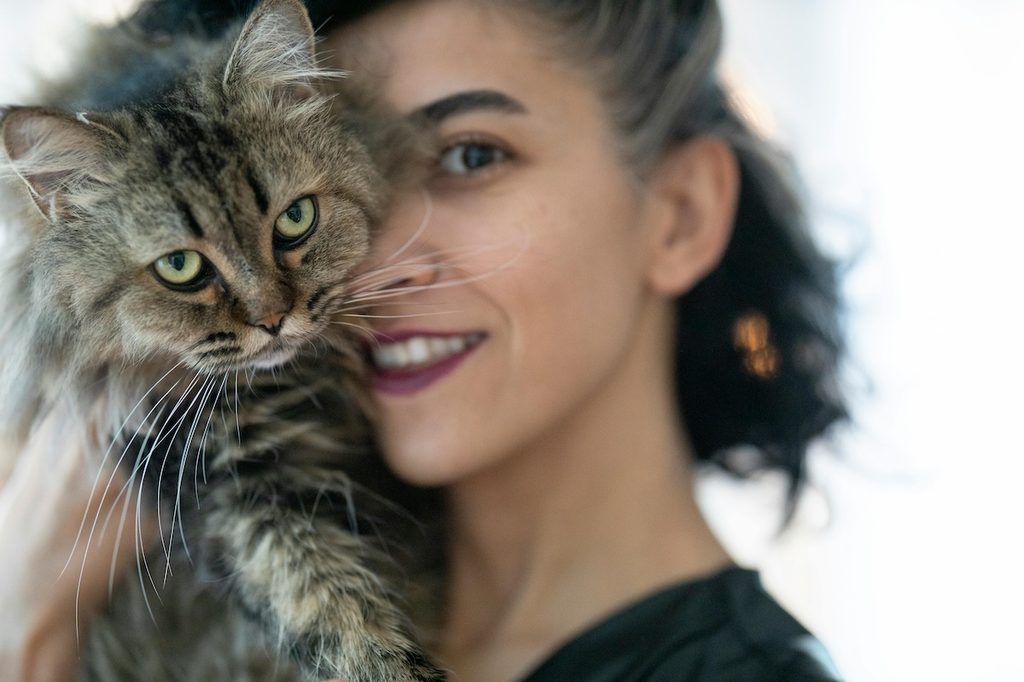
While a cat eating your earwax can be strange (and unwanted, given that their tongues feel like sandpaper), it’s generally not unsafe. Earwax may even have some nutritional value. However, certain medications and drops in the ears can harm dogs. Items like Q-tips and earbuds can have wax on them. If a cat ingests these items, like foraging for wax, that can pose a health risk, too. Finally, garbage cans might contain items like Q-tips (with earwax) and toxic foods.
How do I stop my cat from eating earwax?

Love the cat, but want them to lose the constant desire to consume earwax? Just because earwax isn’t unsafe for cats doesn’t mean you have to enable the habit. Cats are more challenging to “train” than dogs. However, you have options.
- Keep close-lid garbages. Closed-lid garbage can prevent foraging sessions. You can also opt to put the trash behind a cabinet door. Bonus: This tactic will help prevent your cat from consuming unsafe garbage, including toxic food products.
- Store ear-related items carefully. Put earbuds, hearing aids, and other items with earwax in spaces your cat can’t access. Think closed bins or a spot in your closet where even the most athletic cat can’t jump to reach.
- Redirect. Puzzle toys and even gentle nudges out of your ear can help your cat focus on something else.
- Diet. Ensure your cat is getting enough nutritious food. Your vet can help you address concerns about portion size, feeding times, and the type of food you feed kitty.
Closing thoughts
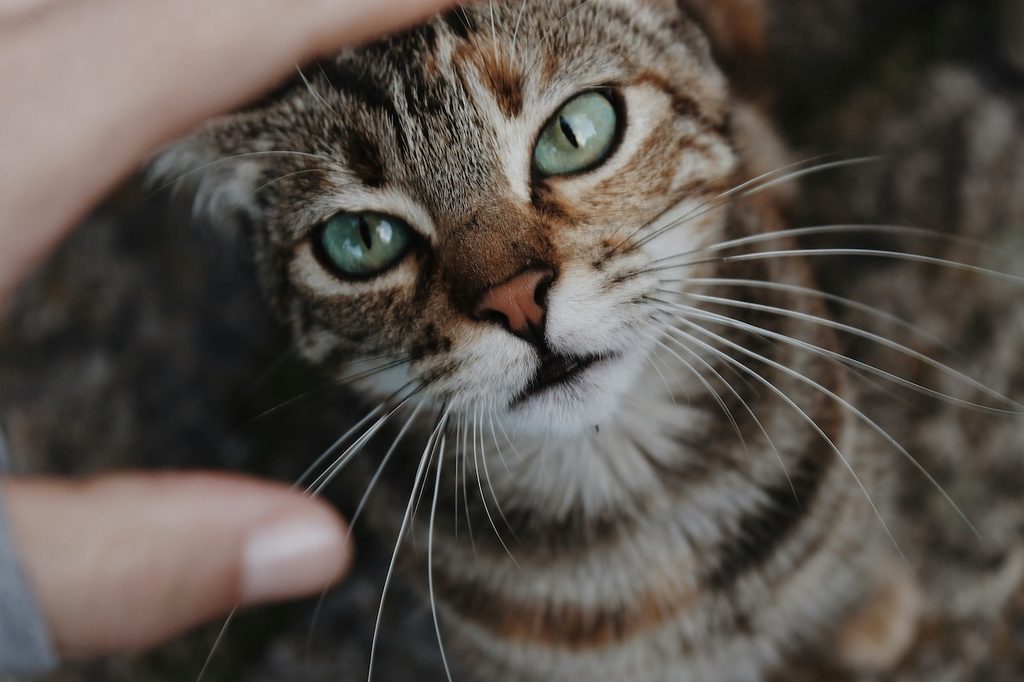
When you took your cat in, you may have expected some antics. However, a desire to eat all the earwax probably wasn’t one of them. It turns out that earwax is a delicacy for cats. Earwax contains fatty acids and proteins that cats’ wild ancestors needed to thrive. Additionally, licking your ear can be a sign of affection.
Earwax isn’t unsafe for cats. However, items containing the substance, like earbuds and Q-tips, shouldn’t be ingested. People also often throw Q-tips in the trash with toxic items, such as specific food products, so be mindful of those risks. Keeping the garbage closed, storing items you use in your ear out of reach, and redirecting can help curb your cat’s habit of eating earwax. Speak with a vet if you are concerned.



